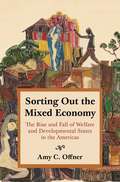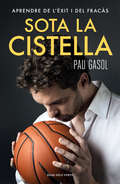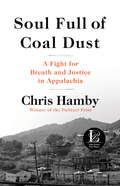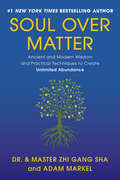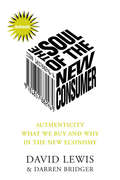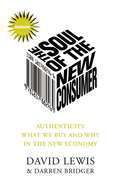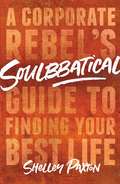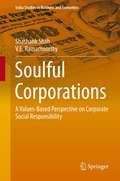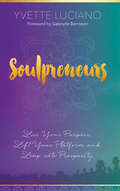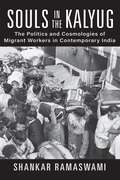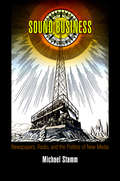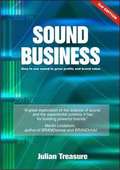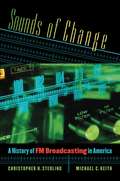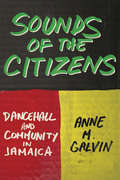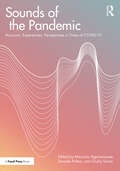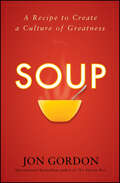- Table View
- List View
Sorting Out the Mixed Economy: The Rise and Fall of Welfare and Developmental States in the Americas (Histories of Economic Life #16)
by Professor Amy C. OffnerThe untold story of how U.S. development efforts in postwar Latin America helped lead to the dismantling of the U.S. welfare stateIn the years after 1945, a flood of U.S. advisors swept into Latin America with dreams of building a new economic order and lifting the Third World out of poverty. These businessmen, economists, community workers, and architects went south with the gospel of the New Deal on their lips, but Latin American realities soon revealed unexpected possibilities within the New Deal itself. In Colombia, Latin Americans and U.S. advisors ended up decentralizing the state, privatizing public functions, and launching austere social welfare programs. By the 1960s, they had remade the country’s housing projects, river valleys, and universities. They had also generated new lessons for the United States itself. When the Johnson administration launched the War on Poverty, U.S. social movements, business associations, and government agencies all promised to repatriate the lessons of development, and they did so by multiplying the uses of austerity and for-profit contracting within their own welfare state. A decade later, ascendant right-wing movements seeking to dismantle the midcentury state did not need to reach for entirely new ideas: they redeployed policies already at hand.In this groundbreaking book, Amy Offner brings readers to Colombia and back, showing the entanglement of American societies and the contradictory promises of midcentury statebuilding. The untold story of how the road from the New Deal to the Great Society ran through Latin America, Sorting Out the Mixed Economy also offers a surprising new account of the origins of neoliberalism.
Sota la cistella: Aprendre de l'èxit i del fracàs
by Pau GasolUn llibre que inspira a través de l'exemple i la reflexió. «Ningú ha dit mai que sigui fàcil complir els teus somnis. Però si tens una passió vertadera i hi poses les teves esperances, l'esforç per assolir-los sempre et compensarà», afirma Pau Gasol que, a Sota la cistella comparteix amb els lectors els valors que l'han ajudat a arribar al cim de la seva carrera esportiva i la seva trajectòria personal. No hi ha res més bonic que fer créixer el nostre talent, i poder fer-ho, a més, amb passió. A partir de la seva experiència al llarg d'una carrera esportiva enlluernadora, en què ha assolit títols però també ha perdut finals, ha conegut victòries i derrotes, i ha viscut moments amb una forma física excepcional i també ha descobert la frustració de les lesions, Pau Gasol comparteix a Sota la cistella els principis i valors que l'han convertit en un model a seguir. En aquest text, molt personal, que inspira a través de l'exemple i la reflexió, Gasol aborda com poden aplicar-se al lideratge i a l'emprenedoria esportiva o empresarial, però també al nostre dia a dia, el talent, l'esforç, l'equilibri o la necessitat de reinventar-te permanentment. «Ara, igual que de petit, la passió per jugar i guanyar segueix sent el meu motor. Cada dia valoro més la fortuna de tenir el privilegi d'estimar el que faig i alhora poder inspirar altres persones», afirma Pau Gasol, i comparteix així la seva visió amb una empatia i una generositat extraordinàries. Ressenyes:«Respecto moltíssim Pau Gasol, sobretot perquè ha remuntat lesions greus amb estoïcisme i ha tornat amb més entusiasme que mai per demostrar que el millor d'ell mateix encara havia d'arribar. I admiro la seva qualitat humana, noblesa, integritat i bondat, virtuts encara més grans que ell, que ja és molt!»Plácido Domingo «Talent, esforç, compromís i, sobretot, molta passió i lideratge són els valors que Pau Gasol comparteix a Sota la cistella. La seva capacitat per inspirar i servir de model als joves és digna d'elogi, perquè l'esport és la porta d'entrada a la salut. I la salut dels nens i de les nenes és garantia d'una societat futura millor.»Valentí Fuster «Pau Gasol és un exemple per a tots els esportistes espanyols. Va ser un pioner i ha triomfat en un país tan competitiu com els Estats Units. I els valors que representa són els que cal transmetre dins i fora de les pistes de tenis o de bàsquet.»Rafa Nadal
Sothebys.com
by Abby Hansen Roger HallowellSotheby's has taken 50% of its business by volume to the Internet. How do the economics change? How do logistics and customer support needs change? What leverage does the Internet provide this established bricks-and-mortar auction house?
Soul Full of Coal Dust: A Fight for Breath and Justice in Appalachia
by Chris HambyIn a devastating and urgent work of investigative journalism, Pulitzer Prize winner Chris Hamby uncovers the tragic resurgence of black lung disease in Appalachia, its Big Coal cover-up, and the resilient mining communities who refuse to back down. Decades ago, a grassroots uprising forced Congress to enact long-overdue legislation designed to virtually eradicate black lung disease and provide fair compensation to coal miners stricken with the illness. Today, however, both promises remain unfulfilled. Levels of disease have surged, the old scourge has taken an aggressive new form, and ailing miners and widows have been left behind by a dizzying legal system, denied even modest payments and medical care. In this devastating and urgent work of investigative journalism, Pulitzer Prize winner Chris Hamby traces the unforgettable story of how these trends converge in the lives of two men: Gary Fox, a black lung-stricken West Virginia coal miner determined to raise his family from poverty, and John Cline, an idealistic carpenter and rural medical clinic worker who becomes a lawyer in his fifties. Opposing them are the lawyers at the coal industry&’s go-to law firm; well-credentialed doctors who often weigh in for the defense, including a group of radiologists at Johns Hopkins; and Gary&’s former employer, Massey Energy, the region&’s largest coal company, run by a cantankerous CEO often portrayed in the media as a dark lord of the coalfields. On the line in Gary and John&’s longshot legal battle are fundamental principles of fairness and justice, with consequences for miners and their loved ones throughout the nation. Taking readers inside courtrooms, hospitals, homes tucked in Appalachian hollows, and dusty mine tunnels, Hamby exposes how coal companies have not only continually flouted a law meant to protect miners from deadly amounts of dust but also enlisted well-credentialed doctors and lawyers to help systematically deny much-needed benefits to miners. The result is a legal and medical thriller that brilliantly illuminates how a band of laborers — aided by a small group of lawyers, doctors and lay advocates, often working out of their homes or in rural clinics and tiny offices – challenged one of the world's most powerful forces, Big Coal, and won. A deeply troubling yet ultimately triumphant work, Soul Full of Coal Dust is a necessary and timely book about injustice and resistance.
Soul Over Matter: Ancient and Modern Wisdom and Practical Techniques to Create Unlimited Abundance
by Zhi Gang Sha William Gladstone Marilyn Tam Adam MarkelCombine Eastern and Western wisdom, mix in proven techniques from Adam Markel the CEO of New Peaks and proven techniques from legendary soul healer Dr. and Master Sha, and you get Soul Over Matter. Designed for readers at every level of economic experience, this book can increase their financial abundance. Soul Over Matter is destined to be the Think And Grow Rich of the 21st century. In addition to practical wisdom and easy-to-implement, proven techniques, the book includes specific financial blessing calligraphies, which allow readers to focus on their financial challenges and conquer them. There are universal laws for creating wealth, and Soul Over Matter explains these laws in simple language.Soul Over Matter is the first financial advice book to focus on the importance of soul in creating wealth. Other books such as Napoleon Hill's Think and Grow Rich have hinted at the importance of connecting to universal laws to create financial abundance. Soul Over Matter is the first book to give specific techniques to do so.
Soul of the New Consumer: Authenticity - What We Buy and Why in the New Economy
by David Lewis Darren BridgerThe New Consumer's Revolution: * Why buzz beats hype * Why cheap is chic * Why brands must be authentic * Why segmentation is dead * Why advertising must reinvent itself * Why New Consumers loathe 'doing the shopping' * Why individuals' Tastespace will triumph in the marketplace New Consumers are revolutionizing the world of business, our culture and social expectations. No longer confined by gender, age, ethnicity or income, they are breaking down barriers, shattering stereotypes and redefining the very meaning of consumerism and the marketplace. From traditional to online retailing, from tracking coolhunters to exploring tastepace, The Soul of the New Consumer unearths the very essence of New Consumer's behavior - their drive for authenticity - and goes far beyond the simple concepts of how we shop or what we buy to answer the most important question of all: why. Every facet of the new economy, from buzz marketing and new retailing technologies to internet shopping, has dramatically altered not only how we buy but what we buy and why. In an era of 'cheap is chic', wealthy shoppers haggle to win even the smallest discounts ; gray consumers buy more rap and techno music than anyone else and are the fastest growing group of internet users ; and the Web and the power of micro-marketing have revolutionized forever the means of wooing new customers. New Consumers are taking over the world and redefining the very meaning of consumerism and the marketplace. As likely to be affluent over-fifties as ambitious under-thirties, New Consumers defy traditional marketing concepts and segmentation by age, gender or income. In pursuit of the authentic experience, New Consumers come together in their defining drive for all things 'real', in everything from food to fashion, foreign holidays to furniture, technology to spirituality. Their attention and interest have shifted from commodity to authenticity. In an affluent world now saturated with affordable products there are three new scarcities - time, attention and trust. This major book shows how these can be won by 'giving the soul control' rather than putting customers on the 'customer is king' pedestal. Over the past decade, Lewis and Bridger have been at the forefront of researching the New Consumers - studying their lifestyles, observing behavior and watching the steady rise in their numbers, influence and economic power. Here, for the first time and with example from Starbucks to Dyson, they report the results of their work, including Amex's use of computer technology to create intimate protraits of individuals - what the author's call 'tastepace'.
Soul of the New Consumer: Authenticity - What We Buy and Why in the New Economy
by David Lewis Darren BridgerThe New Consumer's Revolution: * Why buzz beats hype * Why cheap is chic * Why brands must be authentic * Why segmentation is dead * Why advertising must reinvent itself * Why New Consumers loathe 'doing the shopping' * Why individuals' Tastespace will triumph in the marketplace New Consumers are revolutionizing the world of business, our culture and social expectations. No longer confined by gender, age, ethnicity or income, they are breaking down barriers, shattering stereotypes and redefining the very meaning of consumerism and the marketplace. From traditional to online retailing, from tracking coolhunters to exploring tastepace, The Soul of the New Consumer unearths the very essence of New Consumer's behavior - their drive for authenticity - and goes far beyond the simple concepts of how we shop or what we buy to answer the most important question of all: why. Every facet of the new economy, from buzz marketing and new retailing technologies to internet shopping, has dramatically altered not only how we buy but what we buy and why. In an era of 'cheap is chic', wealthy shoppers haggle to win even the smallest discounts ; gray consumers buy more rap and techno music than anyone else and are the fastest growing group of internet users ; and the Web and the power of micro-marketing have revolutionized forever the means of wooing new customers. New Consumers are taking over the world and redefining the very meaning of consumerism and the marketplace. As likely to be affluent over-fifties as ambitious under-thirties, New Consumers defy traditional marketing concepts and segmentation by age, gender or income. In pursuit of the authentic experience, New Consumers come together in their defining drive for all things 'real', in everything from food to fashion, foreign holidays to furniture, technology to spirituality. Their attention and interest have shifted from commodity to authenticity. In an affluent world now saturated with affordable products there are three new scarcities - time, attention and trust. This major book shows how these can be won by 'giving the soul control' rather than putting customers on the 'customer is king' pedestal. Over the past decade, Lewis and Bridger have been at the forefront of researching the New Consumers - studying their lifestyles, observing behavior and watching the steady rise in their numbers, influence and economic power. Here, for the first time and with example from Starbucks to Dyson, they report the results of their work, including Amex's use of computer technology to create intimate protraits of individuals - what the author's call 'tastepace'. Regardless of product or service, for companies large and small, The Soul of the New Consumer gathers research from marketing, psychology, social trends and economics to present the first ever profile of the independent, individualistic, involved and well-informed consumers who are challenging the way marketing, selling and business are done.
SoulCycle
by David J. Collis Ashley Hartman Eric Van Den SteenOn the Upper East Side, fifty fit women and men cycled in unison to blaring music in an indoor cycling studio shrouded in darkness except for the grapefruit-scented candles lining the podium. A few who had proven their skills were selected to lead the pack in the coveted front row, next to Jake Gyllenhaal and Selena Gomez. The cyclists, clad in spandex and tank-tops featuring the SoulCycle logos, dripped sweat as they climbed hills and sprinted down flat roads while the instructor shouted inspirational slogans. SoulCycle was a leading indoor cycling studio with a massive following. It had grown from a single, 31-bike studio in 2006 to a network of 38 studios in seven metropolitan areas in 2015 (Exhibit 1). Compared to the many other health clubs that existed, SoulCycle saw itself as a lifestyle brand that aimed to "empower riders in an immersive fitness experience." CEO Melanie Whelan led SoulCycle's growth since 2012 and was committed to expanding its footprint, opening 10-15 new studios per year. In July 2015, the company announced an IPO - which valued the company at $900 million - but it was ultimately postponed due to macroeconomic uncertainty. Although Whelan was confident about the company, she knew that the ride was getting more challenging and struggled with how to keep cyclists loyal to the high-priced brand.
SoulCycle's CEO on Sustaining Growth in a Faddish Industry
by Melanie Whelan"I have a rule: Whenever I hear about something from three people, I need to give it a try. In 2008 I heard about SoulCycle from a few friends. At the time, it was two years old and had just one studio, on the Upper West Side of Manhattan. I was immediately curious. I loved group fitness classes, and I was a consistent runner, but I didn’t Spin. I had tried indoor cycling a few times and hadn’t enjoyed it. My friends promised that this studio was different."
Soulbbatical: A Corporate Rebel's Guide to Finding Your Best Life
by Shelley PaxtonPart memoir, part manifesto, Soulbbatical is an invitation to become Chief Soul Officer of your own life—and to open up a whole new world of possibility.&“An honest, emotionally gut-wrenching, and ultimately soul-satisfying memoir.&” —Kirkus Reviews Former Harley-Davidson executive Shelley Paxton did just that. She walked away at the peak of her twenty-six-year marketing career and embarked on a profoundly personal journey to reconnect with her true purpose and deepest desires. She called it her &“Soulbbatical,&” and it not only changed her life, it became her calling. Paxton had a wildly successful life by most definitions—iconic brands, executive titles, and a globe-trotting career that took her to over sixty countries. She had one of the coolest jobs in the world, yet couldn&’t shake the feeling that she had lost herself along the way. Something was missing. Here, she takes you on a sometimes harrowing, often hilarious journey through the illness, divorce, addiction, and tragedy that finally woke her up. Suddenly she was rebelling for her best life, and embracing a new mission: to encourage others to live their most authentic, courageous, and purposeful lives—today. Soulbbatical is an unconventional, exhilarating, and totally badass road map to discovering what you really want—and getting it. Because no matter how far you&’ve strayed from your soul&’s true path, it&’s never too late for transformation.
Soulful Corporations: A Values-Based Perspective on Corporate Social Responsibility
by Shashank Shah V. E. RamamoorthyCorporate debacles, financial and economic crises and environmental disasters in different parts of the globe over the last two decades are seen as indicators for a transformation in business conduct by scholars and practitioners alike. A need for corporate goals to move on from simply maximizing shareholder profit to optimizing stakeholder welfare is being echoed in various quarters. Upon this backdrop, this book shows how Corporate Social Responsibility (CSR) can be a means for global unity and universal welfare and how corporations, as associations of individuals, can identify their 'collective spirits' in terms of environmentally aware, socially responsible and financially rewarding missions and goals. The book examines CSR from an altruistic viewpoint rather than as a strategic tool, where the quality of initiatives and the welfare they create are more important than the simple amount of work done. It traces the evolution of CSR in the Indian and international contexts, yet provides a unique approach to CSR based on Indian traditions, culture and value systems, which are universal in their appeal and timeless in their application. It includes several case studies on CSR and environmental best practices, covering both Indian and international companies that have moulded and influenced the corporate landscape.
Soulpreneurs: Live Your Purpose, Lift Your Platform and Leap into Prosperity
by Yvette LucianoFrom rockstars and record companies, to bestselling authors and celebrity chefs, Yvette Luciano has worked with thousands of Soulpreneurs internationally in the past two decades to achieve soulful success.Now it’s your turn.Whether you wish to start up (or supercharge) your business, create your blog or book, attract abundance as an artist, or transition from your day job to your dream career, Soulpreneurs is your instant life and business coach.Filled with inspirational stories, lessons, practical tips, action steps and easy exercises for developing your clarity, courage and platform.Discover how to confidently serve your audience, heal the world and flourish financially.Step in to your true purpose, power and potential.Create a thriving career and life that feels good on the inside.Soulpreneurs is the ultimate guidebook to living your purpose, lifting your platform and leaping into prosperity.
Souls in the Kalyug: The Politics and Cosmologies of Migrant Workers in Contemporary India
by Shankar RamaswamiHow migrant workers in contemporary India strive toward, and at times realize, elements of a good lifeThe economic development process in India is one that has induced new difficulties and hardships into the lives of poor and working people despite its alleged achievements. In villages, farming families confront an agrarian crisis, with rising costs of seeds, fertilizers, and pesticides; low prices for crops in the face of grave indebtedness; and ecological damage to the soil, water, and forests. Due to the scarcity of jobs, many migrate to cities for work. Once in the city, migrants take on and must contend with low-paid, insecure, and hazardous work. And in urban neighborhoods, they deal with congested living conditions; poor qualities of air, water, and sanitation; and separation from their families in the village.Souls in the Kalyug introduces readers to migrant workers who are confronting myriad hardships and asks how it is that these workers create lives that can become less injurious than their circumstances might suggest. Anthropologist Shankar Ramaswami proposes a three-part answer. In a metal factory in Delhi, migrant workers engage in resistance and collective struggle against perceived oppression and injustice. In the city and village, they weave connections to one another, building friendships in empathetic closeness and fellowship. In the metaphysical realm, they attempt to resist soul-distorting processes in our present, decivilizing times, or the Kalyug. Through these activities, migrant workers strive toward, and at times realize, elements of a good life.Souls in the Kalyug ultimately presents a nuanced and intimate portrait of migrant workers through a complex study of entanglement and noncooperation in workers’ worlds, and in its analysis of workers’ politics, within and outside of labor unions, interpersonal relationships, and foundational religious and cosmological worldviews.
Sound Business
by Michael StammAmerican newspapers have faced competition from new media for over ninety years. Today digital media challenge the printed word. In the 1920s, broadcast radio was the threatening upstart. At the time, newspaper publishers of all sizes turned threat into opportunity by establishing their own stations. Many, such as the Chicago Tribune's WGN, are still in operation. By 1940 newspapers owned 30 percent of America's radio stations. This new type of enterprise, the multimedia corporation, troubled those who feared its power to control the flow of news and information. In Sound Business, historian Michael Stamm traces how these corporations and their critics reshaped the ways Americans received the news.Stamm is attuned to a neglected aspect of U.S. media history: the role newspaper owners played in communications from the dawn of radio to the rise of television. Drawing on a wide array of primary sources, he recounts the controversies surrounding joint newspaper and radio operations. These companies capitalized on synergies between print and broadcast production. As their advertising revenue grew, so did concern over their concentrated influence. Federal policymakers, especially during the New Deal, responded to widespread concerns about the consequences of media consolidation by seeking to limit and even ban cross ownership. The debates between corporations, policymakers, and critics over how to regulate these new kinds of media businesses ultimately structured the channels of information distribution in the United States and determined who would control the institutions undergirding American society and politics.Sound Business is a timely examination of the connections between media ownership, content, and distribution, one that both expands our understanding of mid-twentieth-century America and offers lessons for the digital age.
Sound Business, Second Edition
by Julian TreasureA practical guide to the use of sound in business, from performance-enhancing soundtracks to retail environments and office partitions.
Sound Group China: Urban Waste Entrepreneurs
by John D. Macomber Chad M. Carr Fan ZhaoPrivate sector entrepreneur in China with advanced solid waste management capability competes with state owned enterprises and also government policies supporting a rival technology. Wen Yibo has used engineering expertise and political savvy to build a major privately held company providing the entire supply chain of water treatment, waste water, and integrated municipal solid waste capabilities. The company's services include engineering, manufacturing, consulting, "engineer, procure construct," "build operate transfer," and other forms of public-private partnership. The handling of municipal solid waste takes up to 50% of the annual budget of many urban areas in the developing world. The ability to use private sector funds and expertise could be critical to urban development. However, state owned enterprises can observe the success of private business and can enter and compete using their own skills, contacts, and inexpensive capital. The government may also be interested in subsidizing incineration over composting as a part of "waste to energy" strategy, even though this is less efficient than generating electricity from a coal or gas plant. The company has to decide whether to stick to its waste management roots or expand into an opportunistic incineration technology with minimal and nominal waste-to-energy benefits.
SoundCloud: Subscription Streaming?
by Ashish Nanda Eric Van Den Steen Andy Wu Jeffrey Boyar Bonnie Bennett SlaterCase
Sounds of Change
by Michael C. Keith Christopher H. SterlingWhen it first appeared in the 1930s, FM radio was a technological marvel, providing better sound and nearly eliminating the static that plagued AM stations. It took another forty years, however, for FM's popularity to surpass that of AM. In Sounds of Change, Christopher Sterling and Michael Keith detail the history of FM, from its inception to its dominance (for now, at least) of the airwaves.Initially, FM's identity as a separate service was stifled, since most FM outlets were AM-owned and simply simulcast AM programming and advertising. A wartime hiatus followed by the rise of television precipitated the failure of hundreds of FM stations. As Sterling and Keith explain, the 1960s brought FCC regulations allowing stereo transmission and requiring FM programs to differ from those broadcast on co-owned AM stations. Forced nonduplication led some FM stations to branch out into experimental programming, which attracted the counterculture movement, minority groups, and noncommercial public and college radio. By 1979, mainstream commercial FM was finally reaching larger audiences than AM. The story of FM since 1980, the authors say, is the story of radio, especially in its many musical formats. But trouble looms. Sterling and Keith conclude by looking ahead to the age of digital radio--which includes satellite and internet stations as well as terrestrial stations--suggesting that FM's decline will be partly a result of self-inflicted wounds--bland programming, excessive advertising, and little variety.When it first appeared in the 1930s, FM radio was a technological marvel, providing better sound and nearly eliminating the static that plagued AM stations. It took another forty years, however, for FM's popularity to surpass that of AM. In Sounds of Change, Christopher Sterling and Michael Keith detail the history of FM, from its inception to its dominance (for now, at least) of the airwaves.Initially, FM's identity as a separate service was stifled, since most FM outlets were AM-owned and simply simulcast AM programming and advertising. But the 1960s brought FCC regulations allowing stereo transmission and requiring FM programs to differ from those broadcast on co-owned AM stations. Branching out into experimental programming, FM soon attracted the counterculture movement, minority groups, and noncommercial public and college radio. By 1979, mainstream commercial FM was finally reaching larger audiences than AM. Recent decades have been FM's heyday. But trouble looms. Sterling and Keith conclude by looking ahead to the age of digital radio--which includes satellite and internet stations as well as terrestrial stations--suggesting that FM's eventual decline will be partly a result of self-inflicted wounds--bland programming, excessive advertising, and little variety.-->
Sounds of the Citizens: Dancehall and Community in Jamaica
by Anne GalvinDancehall: It's simultaneously a source of raucous energy in the streets of Kingston, Jamaica; a way of life for a group of professional artists and music professionals; and a force of stability and tension within the community. Electronically influenced, relevant to urban Jamaicans, and highly danceable, dancehall music and culture forms a core of popular entertainment in the nation. As Anne Galvin reveals in Sounds of the Citizens, the rhythms of dancehall music reverberate in complicated ways throughout the lives of countless Jamaicans. Galvin highlights the unique alliance between the dancehall industry and community development efforts. As the central role of the state in supporting communities has diminished, the rise of private efforts such as dancehall becomes all the more crucial. The tension, however, between those involved in the industry and those within the neighborhoods is palpable and often dangerous. Amidst all this, individual Jamaicans interact with the dancehall industry and its culture to find their own paths of employment, social identity, and sexual mores. As Sounds of the Citizens illustrates, the world of entertainment in Jamaica is serious business and uniquely positioned as a powerful force within the community.
Sounds of the Citizens: Dancehall and Community in Jamaica
by Anne M. GalvinDancehall: it's simultaneously a source of raucous energy in the streets of Kingston, Jamaica; a way of life for a group of professional artists and music professionals; and a force of stability and tension within the community. Electronically influenced, relevant to urban Jamaicans, and highly danceable, dancehall music and culture forms a core of popular entertainment in the nation. As Anne Galvin reveals in Sounds of the Citizens, the rhythms of dancehall music reverberate in complicated ways throughout the lives of countless Jamaicans. Galvin highlights the unique alliance between the dancehall industry and community development efforts. As the central role of the state in supporting communities has diminished, the rise of private efforts such as dancehall becomes all the more crucial. The tension, however, between those involved in the industry and those within the neighborhoods is palpable and often dangerous. Amidst all this, individual Jamaicans interact with the dancehall industry and its culture to find their own paths of employment, social identity, and sexual mores. As Sounds of the Citizens illustrates, the world of entertainment in Jamaica is serious business and uniquely positioned as a powerful force within the community.
Sounds of the Pandemic: Accounts, Experiences, Perspectives in Times of COVID-19
by Maurizio Agamennone Daniele Palma Giulia SarnoSounds of the Pandemic offers one of the first critical analyses of the changes in sonic environments, artistic practice, and listening behaviour caused by the Coronavirus outbreak. This multifaceted collection provides a detailed picture of a wide array of phenomena related to sound and music, including soundscapes, music production, music performance, and mediatisation processes in the context of COVID-19. It represents a first step to understanding how the pandemic and its by-products affected sound domains in terms of experiences and practices, representations, collective imaginaries, and socio-political manipulations. This book is essential reading for students, researchers, and practitioners working in the realms of music production and performance, musicology and ethnomusicology, sound studies, and media and cultural studies.
Soup: A Recipe to Create a Culture of Greatness
by Jon GordonWhy it matters who's stirring the pot Soup offers an inspirational business fable that explainsthe "recipe" you can use to create a winning culture and boostemployee morale and engagement. The story follows Nancy, the newlyanointed CEO of America's Favorite Soup Company. She has beenbrought in to reinvigorate the brand and bring success back to acompany that has lost its flavor and profit and has fallen on hardtimes. Fatefully, while eating lunch at a local soup shop, Nancydiscovers the key ingredients to unite, engage, and inspire herteam and create a culture of greatness.From the bestselling author of The Energy Bus, The NoComplaining Rule, and Training CampFind out how culture drives behavior, behavior drives habits,and habits deliver resultsCreate relationships that are the foundation upon whichsuccessful careers and winning teams are builtFeatures quick takeaways you can use to invest in your people,build trust, create unity, and enhance engagementA turnaround tale like few others, Soup will inspire youto work in your own company to unleash the passion that deliverssuperior results.
